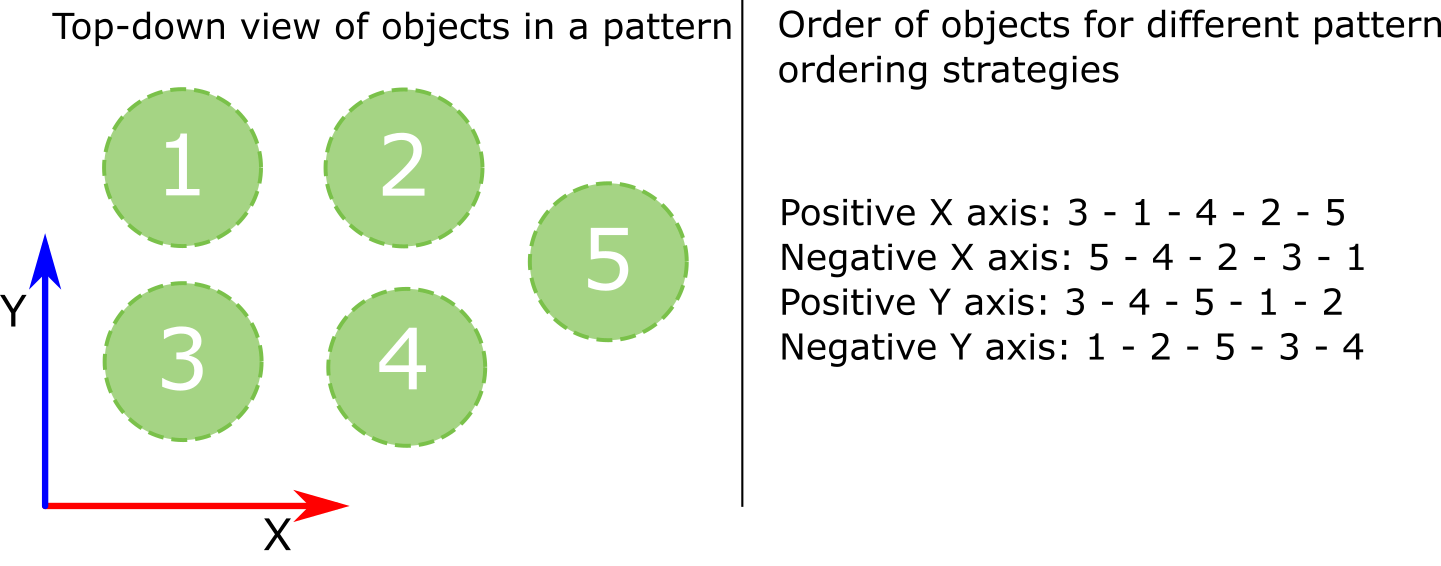Warning
You are reading the documentation for an older Pickit release (3.4). Documentation for the latest release (4.0) can be found here.
Object ordering
When multiple objects are detected, object ordering determines the order in which they should be picked. The following strategies are available:
Highest pick: Sort objects by their pick point location, from largest to smallest ROI frame Z-coordinate.
Lowest pick: The reverse order of ‘Highest pick’.
Highest object point: Sort objects by the highest detected point.
Lowest X: Sort objects by their pick point location, from smallest to largest ROI frame X-coordinate.
Highest X: The reverse order of ‘Lowest X’.
Lowest Y: Sort objects by their pick point location, from smallest to largest ROI frame Y-coordinate.
Highest Y: The reverse order of ‘Lowest Y’.
Largest product (Flex only): Objects are sorted from big to small volume or surface.
Pattern along the positive X-axis: See image below.
Pattern along the negative X-axis: See image below.
Pattern along the positive Y-axis: See image below.
Pattern along the negative Y-axis: See image below.
Highest matching score (Teach only): Sort objects with the highest model matching score first.
Top box first (Flex only): Sort objects with the highest product center first, but if multiple sides of a box are recognized, the largest side is prefered.
The pattern sort options are useful for depalletization or pallet loading applications. The picture below illustrates each option:
